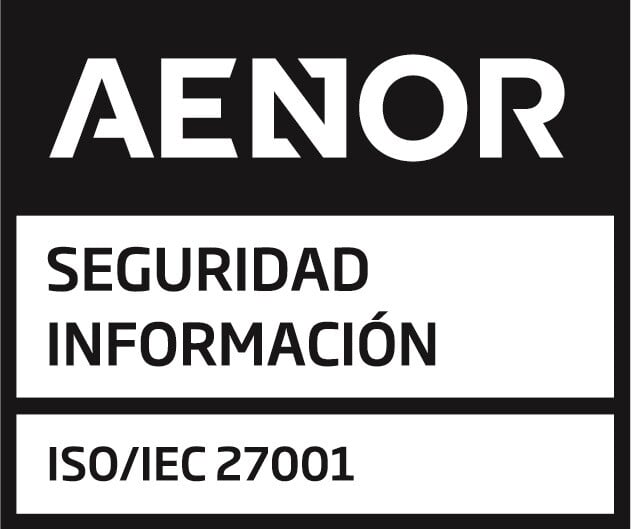Reporting serves as the backbone of any industry, providing a comprehensive overview of a company's operations. It consolidates and analyzes vast amounts of data, transforming it into a digestible and reliable document that facilitates informed decision-making. Effective reporting guides resource allocation, enhances profitability, and optimizes operations.
While the importance of reporting is undeniable, it remains a complex and challenging task, especially in the dynamic renewable energy sector. This exploration delves into the intricacies of renewable energy reporting in this ever-evolving industry.
Diverse technologies and sources
The renewable energy industry is a dynamic and rapidly evolving landscape, driven by a diverse array of technologies—solar, wind, hydro, geothermal, and biomass—propelling us towards a sustainable future. This heterogeneity of sources, however, presents a unique set of challenges in establishing standardized reporting practices. Each technology employs distinct metrics, measurement techniques, and reporting requirements, creating a complex and multifaceted reporting landscape.
To effectively navigate this intricate terrain, organizations must adopt a comprehensive approach that encompasses unified reporting software, rigorous staff training, and robust quality assurance processes. Unified reporting software serves as a central repository, harmonizing data from disparate sources and applying standardized calculations to generate consistent and reliable reports. Comprehensive staff training ensures that personnel possess a deep understanding of the nuanced metrics and measurement techniques associated with each technology, enabling accurate data collection, analysis, and reporting. Robust quality assurance processes, validated by technology experts, provide an additional layer of confidence in the accuracy of reported data, ensuring that decision-making is guided by reliable and actionable insights.
Regulatory compliance
Navigating through a labyrinth of regulations at local, national, and international levels is an ongoing challenge. Detailed reporting on energy production, emissions, and compliance with renewable energy targets is imperative. Staying well-informed about evolving regulations and engaging in open communication with regulatory authorities are key strategies. For instance, in Europe, the European Union Agency for the Cooperation of Energy Regulators plays a central role.
Measurement and verification challenges
The intermittent and variable nature of renewable energy sources like solar and wind poses a unique set of challenges for accurate output measurement. Weather conditions, including cloud cover and wind speed, can significantly impact the energy yield of these sources, demanding meticulous attention to measurement practices.
To effectively address these challenges, companies should implement a comprehensive strategy that incorporates in-depth documentation, version control, audit trails, and robust validation checks. Maintaining detailed documentation and metadata is essential for understanding the context and reliability of measurement data. This documentation should include information on data sources, methodologies employed, and any transformations applied to the data.
Implementing version control and audit trails ensures the traceability of measurement data over time, enabling the identification and rectification of errors or inconsistencies. These measures also provide a record of data access and modifications, enhancing data integrity and preventing unauthorized alterations.
Conducting robust validation checks is crucial for verifying the accuracy and quality of renewable energy output data. These checks should involve comparing data against multiple sources, identifying and correcting outliers, and assessing the overall consistency of the data. By implementing rigorous validation procedures, organizations can gain confidence in the reliability of their data and make informed decisions based on accurate information.
Project finance and investment reporting
In addition to the complexities of project finance structures, the renewable energy industry also faces dynamic regulatory landscapes that further contribute to the intricacy of reporting and assessment. Government incentives, subsidies, and changing environmental policies significantly impact the financial viability of renewable projects.
Moreover, the sector's reliance on rapidly evolving technologies introduces an additional layer of complexity. Continuous advancements and shifts in the renewable energy landscape necessitate constant adaptation to remain competitive. Balancing the financial aspects with technological developments and market trends requires a keen understanding of the industry dynamics.
Furthermore, global economic conditions and geopolitical factors can influence the availability of funding and impact the overall stability of renewable energy projects. Stakeholders must navigate these external variables while ensuring the long-term sustainability of their investments.
In this challenging environment, effective communication and collaboration among stakeholders become pivotal. Successfully managing and mitigating risks involves not only financial acumen but also a comprehensive understanding of the interconnected factors shaping the renewable energy sector.
As the industry continues to grow, fostering a supportive ecosystem for innovation, collaboration, and transparent reporting becomes essential. This multifaceted approach is crucial for ensuring the sustained success of renewable energy initiatives and meeting the growing demand for cleaner and more sustainable energy sources.
Carbon accounting and emissions reduction
Renewable energy projects hold immense promise in mitigating climate change by displacing fossil fuel-based power generation. However, accurately quantifying the emissions reductions achieved by these projects requires a rigorous and comprehensive approach to carbon accounting. This process involves meticulously tracking and calculating greenhouse gas emissions throughout the entire project lifecycle, encompassing not only the operational phase but also the upstream and downstream stages.
While traditional carbon accounting methods focus primarily on emissions from direct operations, life cycle assessments (LCAs) provide a more holistic view by considering emissions from all stages of a project's life cycle, from resource extraction and material processing to transportation, construction, operation, maintenance, and eventual decommissioning. This broader perspective is essential for capturing the true environmental impact of renewable energy projects.
The accuracy of carbon accounting calculations hinges on the use of reliable and up-to-date emission factors. These factors represent the average emissions associated with specific activities or sources, such as the manufacturing of solar panels or the operation of wind turbines. Employing robust emission factors specific to the renewable technologies used in a project ensures that emissions reductions are accurately quantified.
By embracing these principles, renewable energy project developers can ensure that their carbon accounting practices are rigorous, transparent, and aligned with international standards. This, in turn, facilitates accurate assessment of emissions reductions, enabling informed decision-making and contributing to the broader goal of mitigating climate change.

Stakeholder expectations and transparency
In the dynamic and rapidly evolving sector, stakeholders, including investors, regulators, communities, and environmental organizations, are increasingly demanding transparency and accountability. Addressing these heightened expectations requires a commitment to comprehensive and precise renewable energy reporting practices.
Adopting transparent communication channels, such as sustainability reports and stakeholder engagement forums, fosters trust and demonstrates a dedication to achieving both financial and sustainability objectives. Actively seeking and incorporating feedback from diverse stakeholder groups cultivates a collaborative approach, ensuring that the renewable energy industry aligns with the evolving expectations of its multifaceted audience.
Regularly reviewing and enhancing reporting frameworks, including the adoption of internationally recognized standards such as the Global Reporting Initiative (GRI), further strengthens transparency and provides stakeholders with the insights necessary for informed decision-making and sustainable investments. This commitment to transparency not only enhances the reputation of renewable energy companies but also contributes to building a more informed and engaged stakeholder base, essential for the continued growth and success of the industry.
Data traceability
In the renewable energy industry, maintaining data traceability is a cornerstone of robust reporting practices. This entails establishing a transparent and verifiable chain of custody for data, ensuring its integrity from its origin to its final use in analysis and reporting. Embracing blockchain technology can elevate data integrity to new heights, providing an immutable record that assures stakeholders of the accuracy and reliability of reported information. Implementing regular audits and verification processes further strengthens the credibility of the data trail, fostering confidence in the quality of presented information. This unwavering commitment to traceability not only fulfills reporting standards but also aligns with the industry's overarching principles of transparency and accountability.
By adhering to these rigorous data management practices, renewable energy companies can demonstrate their dedication to providing stakeholders with reliable and trustworthy information. This, in turn, fosters trust and collaboration among diverse stakeholder groups, creating a supportive environment for the continued growth and success of the renewable energy industry.
Investing in automation tools: a strategic imperative
Investing in accurate reporting and automation tools is a strategic imperative for renewable energy companies, not only to ensure compliance and transparency but also to maximize the overall effectiveness and success of their projects. These tools offer a range of benefits:
- Efficiency and Time Savings: Automation streamlines reporting processes, freeing up valuable time and resources for more strategic endeavors.
- Reduced Human Error: Automation eliminates the risk of human error, ensuring consistent and reliable data for decision-making and reporting purposes.
- Consistency and Standardization: Automation enforces uniform reporting formats and methodologies, ensuring comparability and consistency across projects and portfolios.
- Real-time Data Access: Automation provides real-time insights into project performance and environmental impact, enabling timely decision-making and proactive regulatory compliance.
- Scalability: Automated reporting systems can adapt to increased data volume and evolving reporting requirements, ensuring long-term utility and scalability.
- Adaptability to Regulatory Changes: Automation facilitates seamless updates to reflect evolving regulatory standards and requirements, ensuring ongoing compliance and adherence.
- Enhanced Data Security: Automated reporting systems safeguard sensitive information, reducing the risk of data breaches and protecting the integrity of critical project data.
Navigating the path
Renewable energy reporting is a dynamic and multifaceted process that demands a deep understanding of the sector's unique challenges. By navigating through diverse technologies, complex regulatory landscapes, and intricate data management requirements, companies can accurately reflect the impact and potential of their renewable energy initiatives. This commitment to accurate and transparent reporting paves the way for a more sustainable and transparent energy future, one that is driven by informed decision-making, responsible resource utilization, and a commitment to environmental stewardship.
Is reporting something you struggle with?
Embrace the power of automating reporting with QBi.
Our automation tools gather and analyze data, reducing manual entry and giving you more time for strategic decision-making.
Revolutionize your decision-making with our advanced automation tools. Our expert-designed software transforms raw data into actionable insights, optimizing processes, reducing costs, and maximizing profitability. Partner with us for sustainable growth through data-driven solutions.

